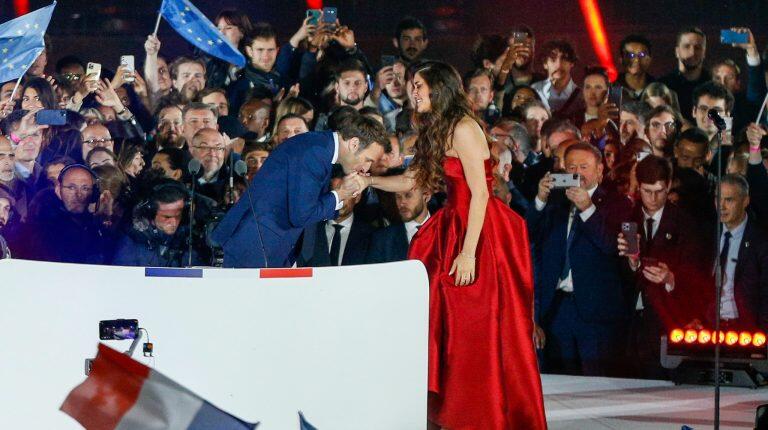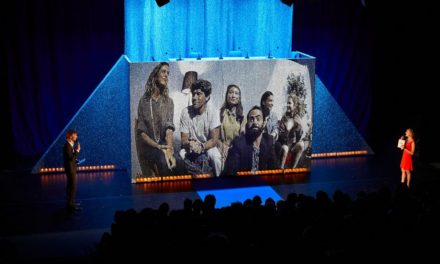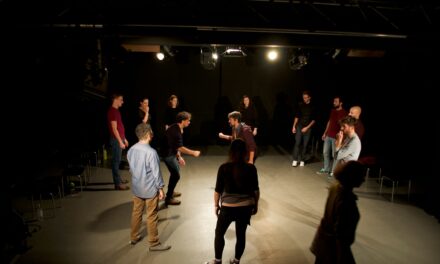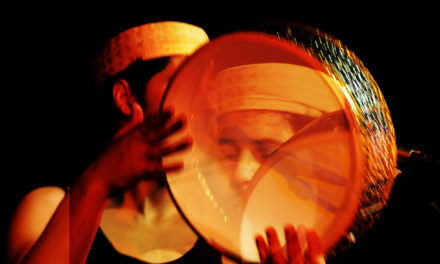I’m honored to be recognized by Egyptian and French presidents, says El Dibany.
Egpytian mezzo-soprano Farrah El Dibany made headlines around the world when she sang the French national anthem at President Emmanuel Macron’s victory event after having been awarded the prestigious Order of Arts and Letters by the French government.
El Dibany was also the first Egyptian and Arab singer to perform at the Paris opera. She participated in a large number of major events in several countries around the world.
Born in Alexandria, El Dibany’s talent was discovered by her music teacher. Her father and grandfather supported her to be a professional opera singer. Egyptian President Abdel Fattah Al-Sisi honoured El Dibany at the Youth Conference.
How did you feel when you performed at the inauguration of the French president?
Farrah El Dibany: It was my honor to sing on this important occasion. It had a great impact on me, and gave me a push forward to develop myself.
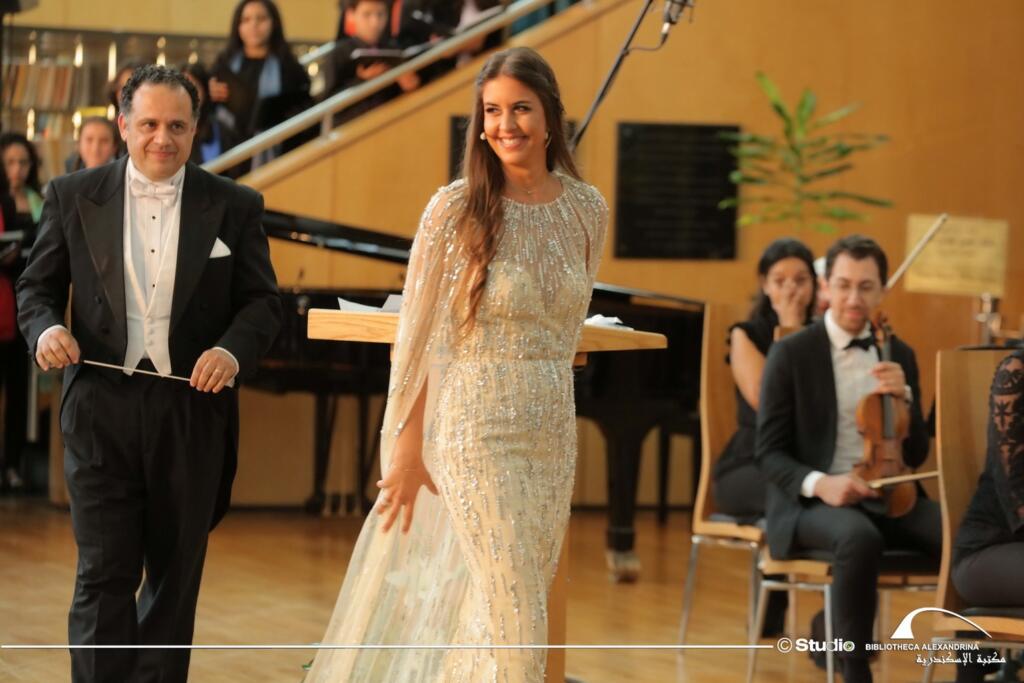
Who chose you to sing on that occasion?
It was someone from the organizing committee. He knew me well and attended my concert at the Paris opera. He told President Macron and his wife about the idea of an Egyptian singer singing the French national anthem in the event. They welcomed the idea.
Do you think being awarded the French Order of Arts and Letters paved the way for you to perform in front of Macron?
No, because I was supposed to receive the French honor in July last year, but the award ceremony was postponed to March 2022. I was honored to be the youngest woman in Egypt and the Arab world to win this prestigious award. It was a huge achievement for me that will leave an impact on my life.
How did the Paris opera experience affect your career?
It was the most important step in my career, and it paved the way for all the successes that followed. Being the Egyptian artist to sing at the Paris opera was a very big achievement. Those who nominated me to sing at the inauguration ceremony were well aware of my history with the Paris opera. It is the most important experience in my life.
You also participated in the UNESCO celebration, how did you see that?
It was a wonderful concert and I represented Egyptians and Arabs in this celebration. It was an important event and I chose the song of late Abdel Halim Hafez “I Swear to My Heart and Its Joys”. I chose it because all Egyptians and Arabs love it and have many memories with this song.
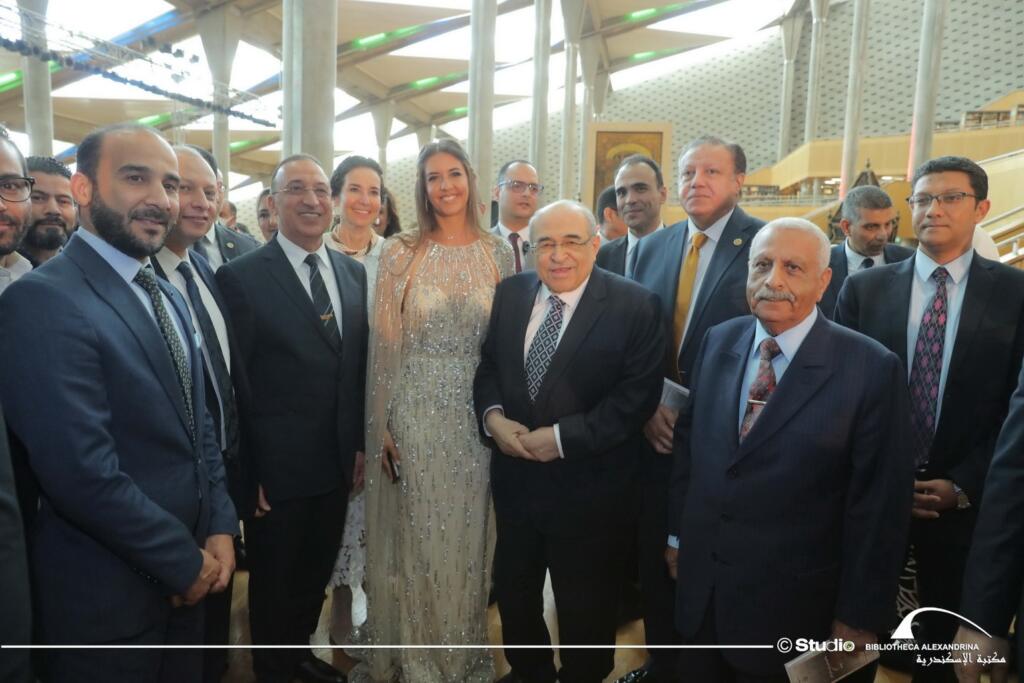
Despite the great success that you achieved abroad, you’re less famous in Egypt. Why?
I should not be famous among all the segments of society. Egypt has a great opera, but the Egyptian people are not very familiar with opera singing. However, I believe I am quite popular among the younger generations in Egypt. I also perform in many concerts and occasions in Egypt.
Have you received any awards in Egypt?
I was honored by President Abdel Fattah Al-Sisi at the Youth Conference in 2019. It was the first award in my life.
How do you see the difference between Cairo and Paris operas?
I cannot compare the Paris opera to the Cairo Opera House. In Paris, I used to sing with a group of international singers, but in Egypt, I sang solo in my concerts. This feeling is indescribable. In Egypt, ministers, ambassadors, thinkers, and artists attend my concerts, and this is a very big thing for me.
You said your family loves music and arts. Tell us about your family.
Nobody in my family works in art. My grandfather is a doctor, my father is an architect, and my mother works in a bank. They all love music and opera. I grew up in a house that loved music, and I learned to play piano and ballet dancing, when I was young. My grandfather introduced me to the opera world, so music played a big role in our lives. My grandfather used to play piano, which encouraged me to study piano and sing.
How did your grandfather impact your life?
My grandfather was the first to encourage me to listen to opera songs. He supported me to learn how to play piano and sing every day. He encouraged me while studying architecture and had a great influence on me.
You studied architecture in Germany, so how did this shift into art happen?
I studied architecture in Egypt and completed my study in Germany, but honestly singing has been part of my life since I was young.
You studied architecture in Berlin, how did you adapt to life outside Egypt?
It was very difficult, and a very big challenge for me to study two specializations with this difficulty at the same time and in two different universities, in addition to going to a new country and living alone, so I learned how to rely on myself, and my family supported me. In the end, you are alone and it is your job that talks about yourself and nothing else, so I learned to work and be patient, and I learned to manage time and reconcile between two different disciplines. So far, the results of that have shaped my character, and now I can get things done quickly. When I have work pressure, I can reconcile. This is what I learned. It was a difficult period in my life and I needed great support from everyone around me. At the same time, some told me that I would not be able to reconcile between the two universities, but that I was able to finish the two universities on time and graduated with distinction in both, and then completed a masters degree in operatic singing.
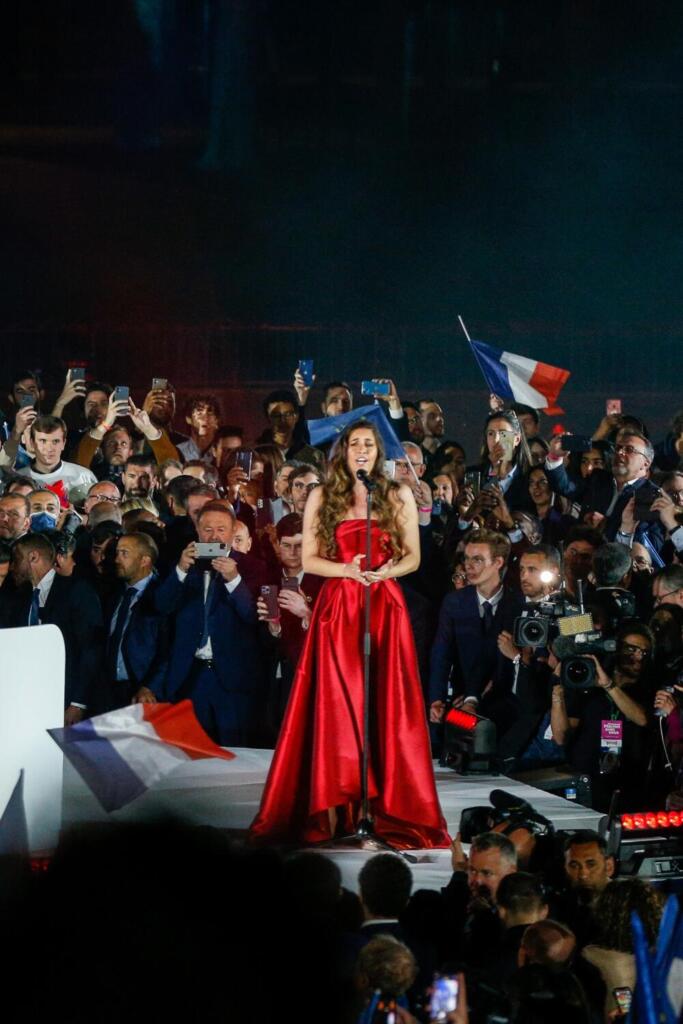
You were one of the heroes of the short film Everyday Hero. Do you consider acting in films?
If I was offered a suitable opportunity for acting, I could think of going through the experience, but so far nothing has been offered and therefore I am not currently thinking about acting.
Why did you choose opera singing?
I grew up singing opera, and my music teacher discovered my talent when I was young.
How could the opera be more popular in Egypt?
By making the people feel that opera singers are close to them and contemporary in everything, whether thought, singing, and even the way they dress. The Arab public should change their perception of opera singers, and I think that new generations have begun to understand this.
What are your dreams?
I want to perform Opera Aida at the pyramids, Luxor, or Aswan. I also want to perform a song by late actor and singer Samir Sabry because he meant a lot to me. He supported me, and attended all my concerts. He was honest with me, and I felt his great love. My next concert will be dedicated to him, as he was a great and irreplaceable artist.
This article was originally posted by Daily News Egypt on June 7th, 2022 and has been reposted with permission. To read the original article, click here.
This post was written by the author in their personal capacity.The opinions expressed in this article are the author’s own and do not reflect the view of The Theatre Times, their staff or collaborators.
This post was written by Kadry Al-Haggar.
The views expressed here belong to the author and do not necessarily reflect our views and opinions.

